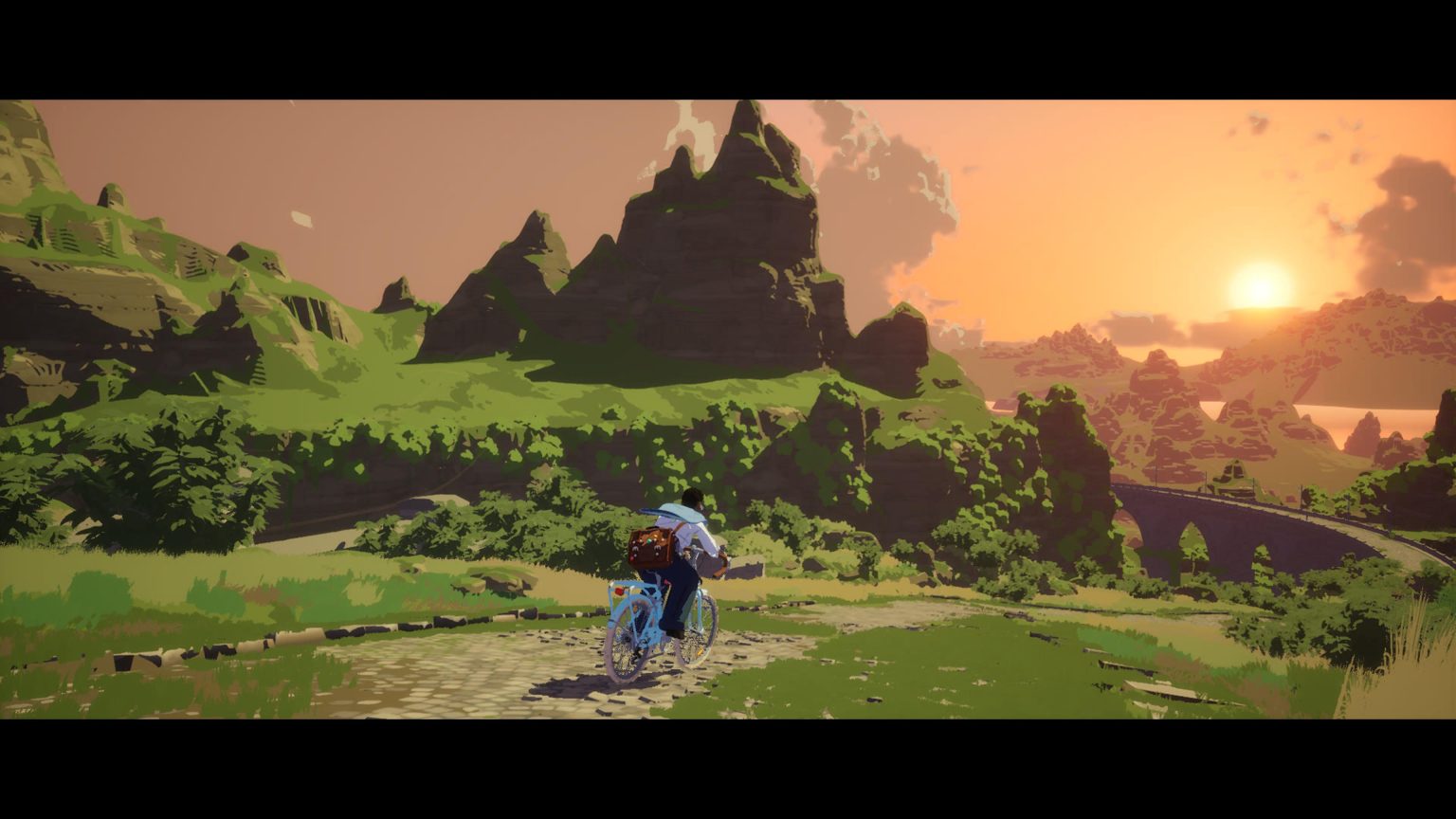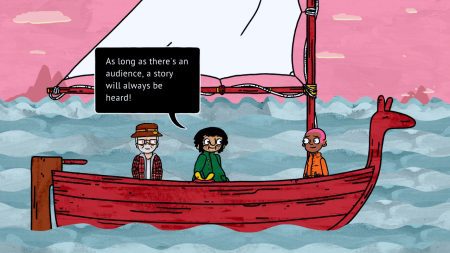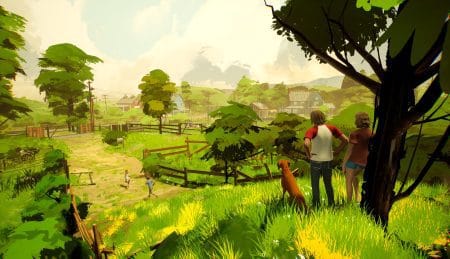Why, exactly, do we live?
Do we live to pursue our dreams? To find love and forge lasting memories? Or, do we live in service of something greater, like having children and ensuring their freedom to live?
SEASON: A Letter to the Future, developed and published by Scavengers Studio, asks these questions and leaves you to answer them for yourself. Over a brisk seven-hour adventure, you’ll bike across the countryside, meet and befriend other travelers, and observe the changing of seasons.
As you travel, you’ll record a testimony of this world through your trusty journal. You’ll jot down notes, take pictures, and capture sounds, all while learning about the people you’ve survived and the people who will survive you.
It’s a breathtaking journey that challenges players to be their own storytellers—to great effect. While it suffers from some janky controls and spotty voice acting, SEASON is a game unlike any I’ve experienced before, and a sterling example of interactive media done right.
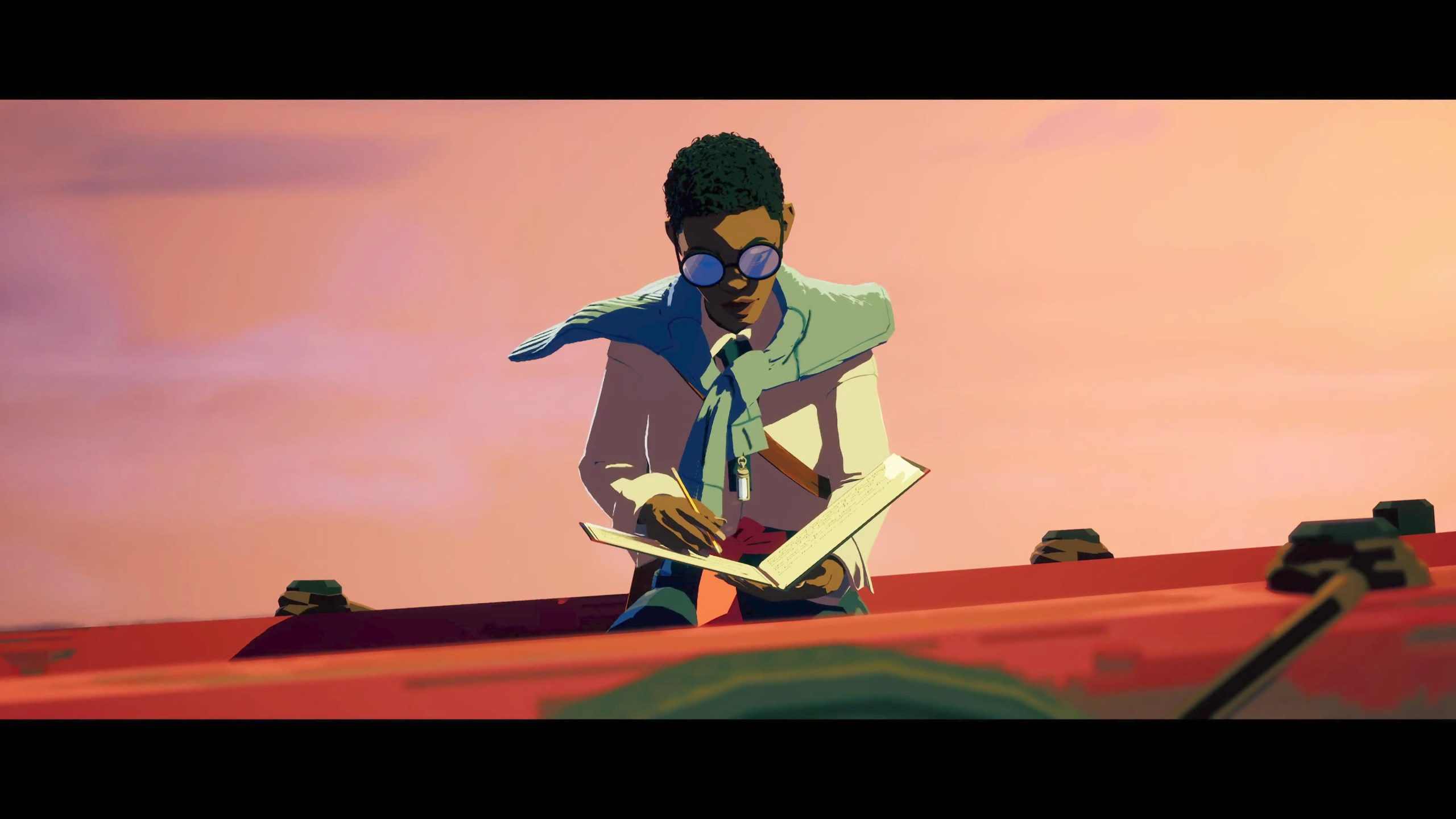
Leaving Home
SEASON: A Letter to the Future opens on a dreamlike note. You play as Estelle, a young woman who is detailing an account of her village and addressing it to someone in the future. Her forum for this communication: a journal, the majority of its pages still empty.
The story so far is as captivating as it is surreal. The previous changing of seasons forced your family to migrate to a remote village named Caro, where you’ve been raised your whole life. Outside of the village elder, no one has knowledge of the outside world or its dangers. Adding to the mystery, your friend recently had a vision that the current season is ending—altering the world yet again and bringing about a new future.
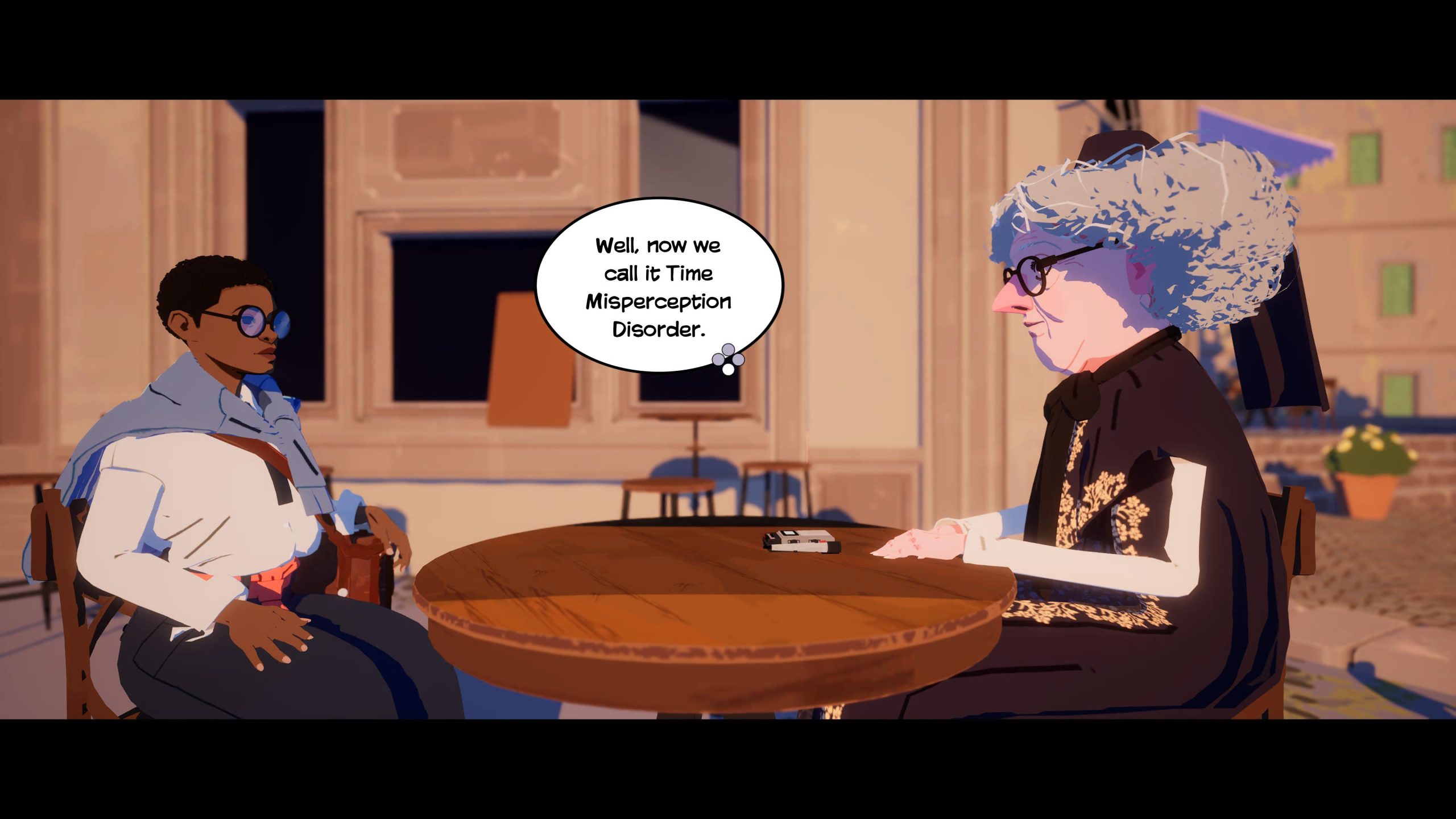
Before civilization changes forever, Estelle has asked the village elder to let her travel the world and record its wonders. The only stipulation is that she brings her journal to the Museum Vault, located at the edge of the world, where she can store her findings for future generations.
Finishing her initial account, Estelle closes her journal and joins her mother for an early morning sendoff. Before she leaves, her mother insists on forging a pendant—made from a few shared memories—to protect her on her journey. In a short sequence, you’ll gather sentimental objects around your bedroom (like an old picture of your parents) to burn for the pendant.
After a final embrace, you leave with your journaling tools (notebook, camera, and recorder), the pendant, and your bicycle, likely never to return home again.
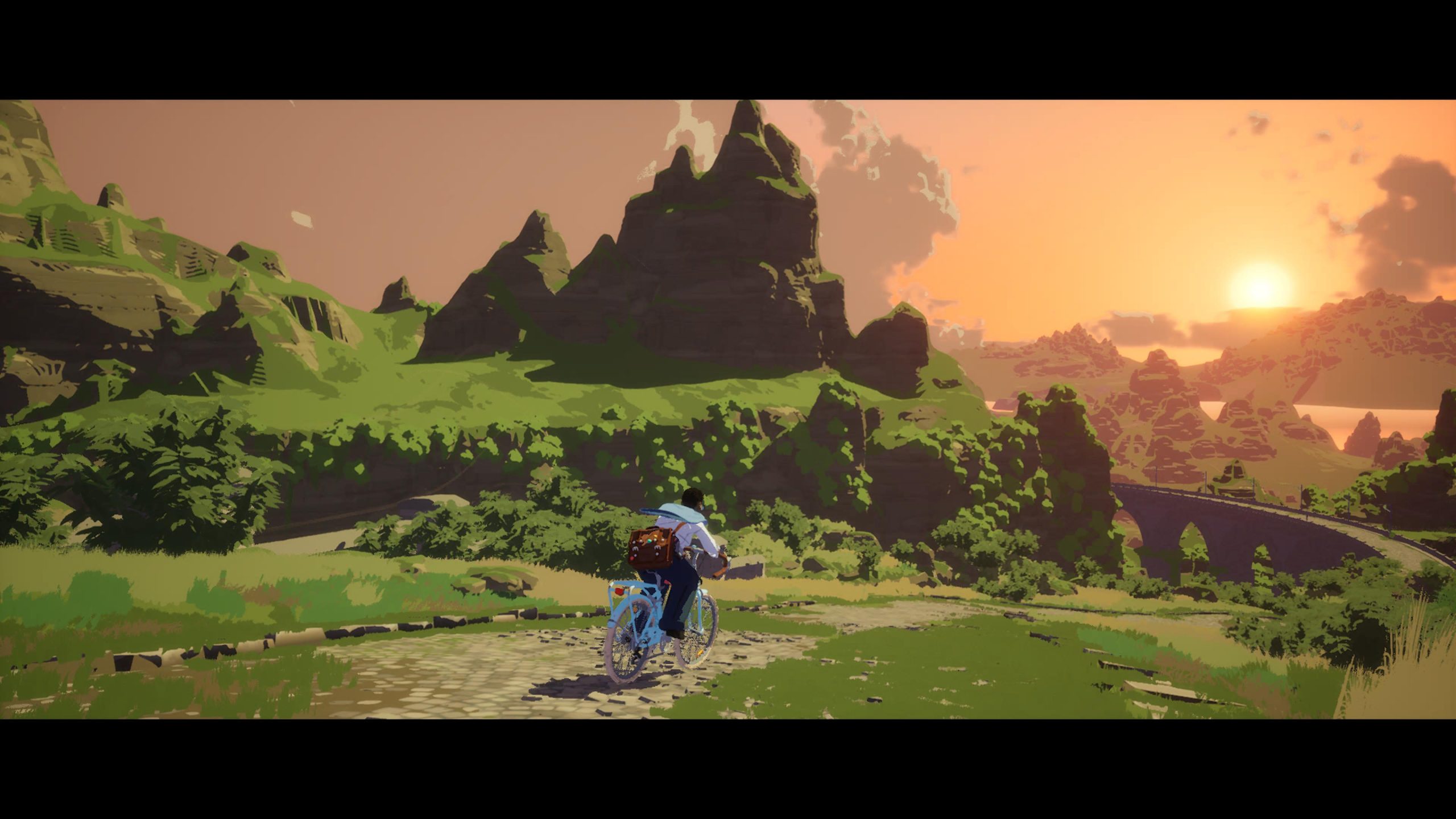
The Allure of the Unsolved
SEASON isn’t afraid to pack a lot into its narrative—and that’s just the first 20 minutes. The game is rich with worldbuilding, from the timeline of its occult seasons (a concept all too familiar to readers of N. K. Jemisin’s The Fifth Season) to its various settlements, factions, and characters.
It’s a lot to absorb, and the exposition can get heavy at times. Thankfully, the writing is sublime, rivaling literature with its sharp phrasing and elegant prose. It all amounts to a mystery that hooked me from the jump and refused to let go.
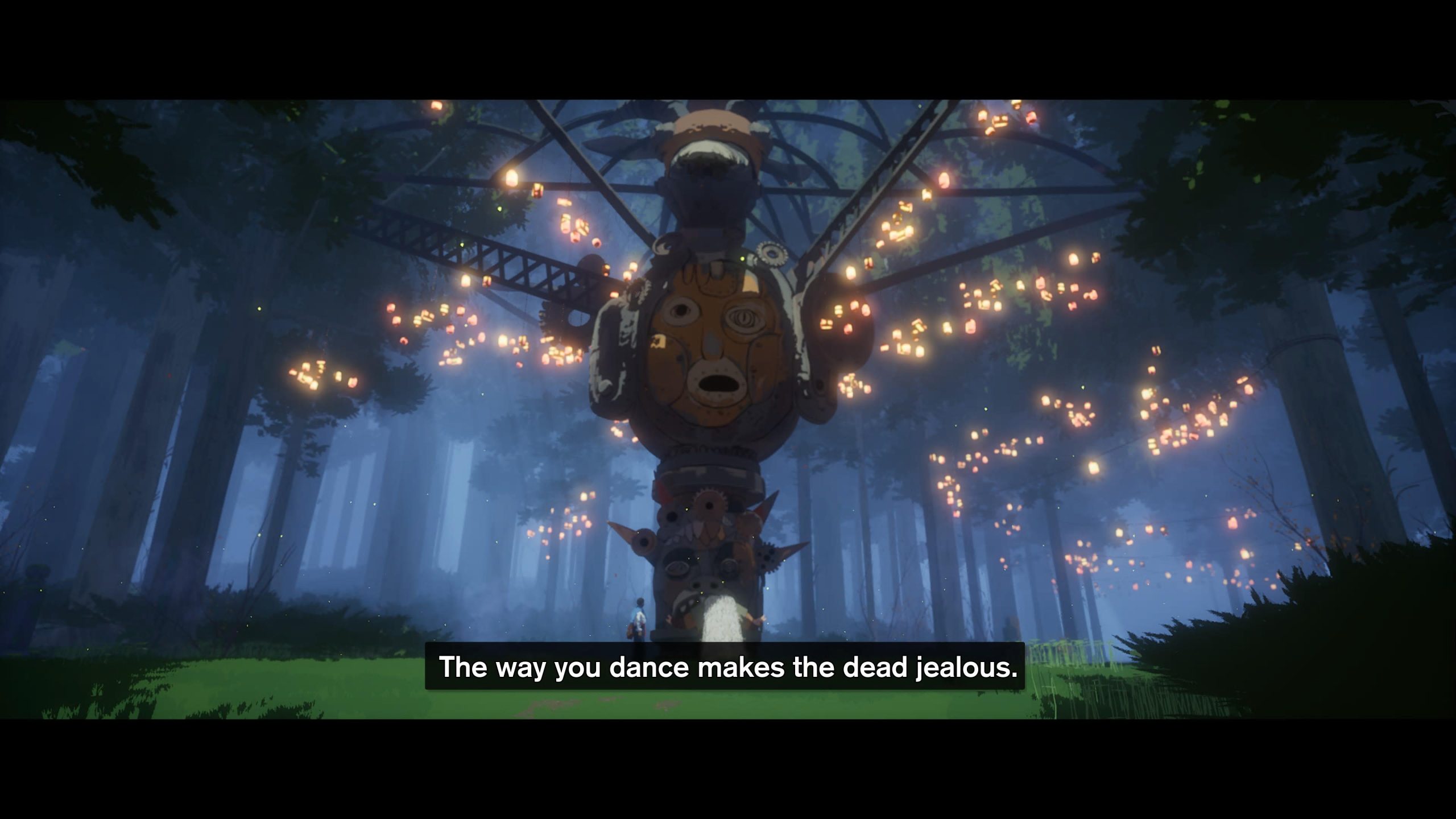
That’s not to say it’s a perfect tale. If anything, SEASON: A Letter to the Future falls victim to its own ambition. The story bites off a bit too much for a game of its length, leaving players to speculate as to the origin of the seasons and the fate of the world. Many of the finer story threads remain loose by the time the credits roll, and the game ends before it can provide a fitting conclusion.
And yet, much like how I felt when ABC’s LOST finished its syndication, I wouldn’t change a damn thing. It’s an inexplicable feeling, but the power of SEASON lies not in the destination, but in the path to get there. No player’s experience is bound to be the same, and everyone will take away their own set of morals when all is said and done.

Chronicling Life’s Passage
Structurally, SEASON: A Letter to the Future revolves around two core actions: biking and journaling. As Estelle leaves Caro Village behind her, you’ll cycle through a forest of green, observing flora, fauna, and other elements of nature. Everything, from abandoned settlements to the ocean in the distance, can be cataloged in your journal.
Your primary tools are your aforementioned camera and microphone. At the press of a button, you can snap photos and capture sound bites, which you can then record in your journal, scrapbook style. Some sites and sounds, when observed, will yield a unique piece of narrative in the form of Estelle’s inner monologue.
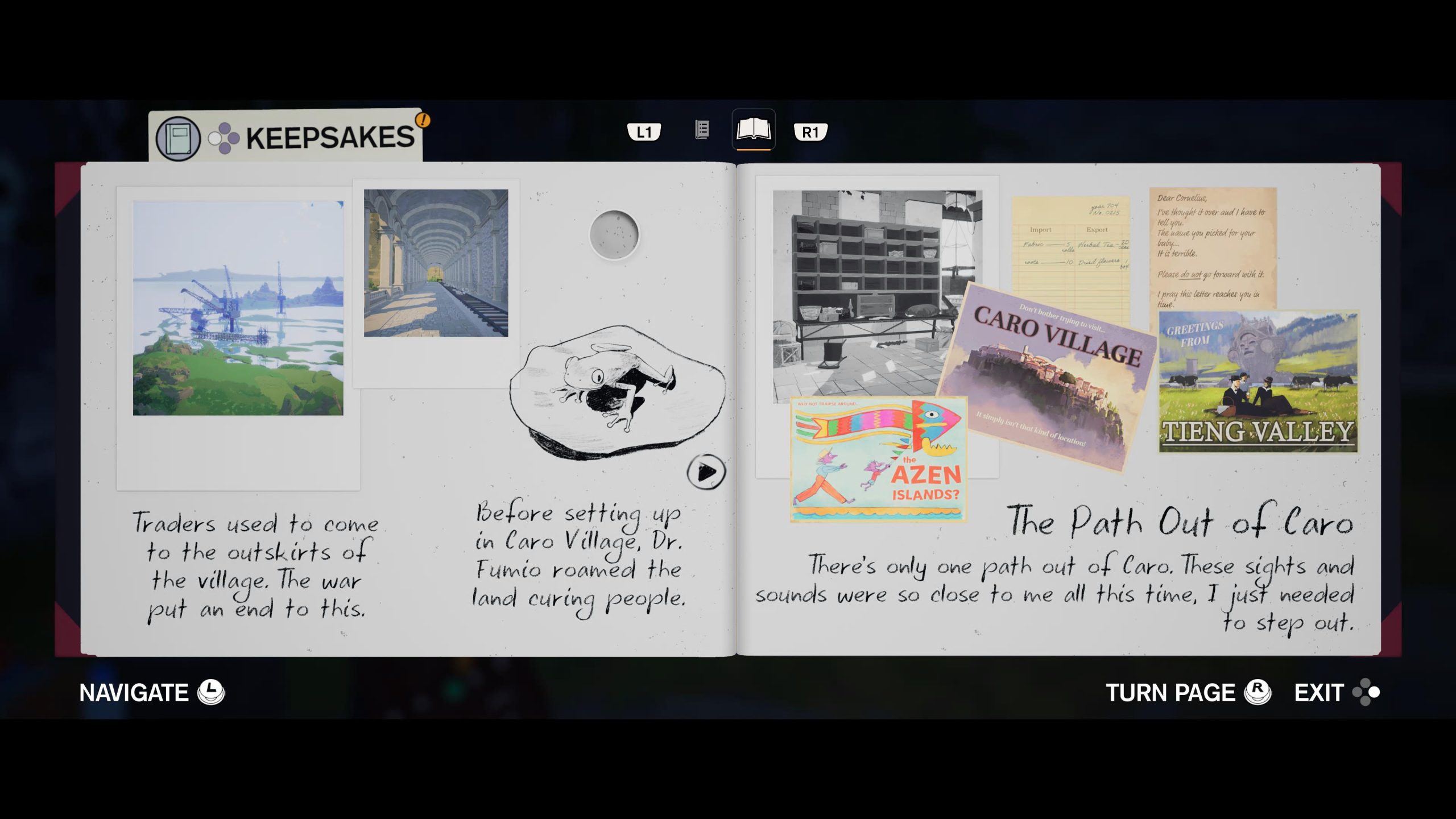
The more you scrapbook, the more you’ll reveal about yourself and the world around you. You’ll also unlock stickers, stamps, and quotes from Estelle you can use to further adorn your pages. It’s as soothing an exercise as it sounds, and SEASON absolutely nails the feeling of leading your own adventure.
As someone whose own mother loves to travel and scrapbook her adventures, I found myself enamored by Estelle’s fleeting road trip. I came to cherish every step of the journey, taking ample time to stop, savor the landscape, and find a new joy that’d stick with me for hours to come. SEASON lives for these moments, and you’d be hard-pressed to find a game that replicates the magic it provides.
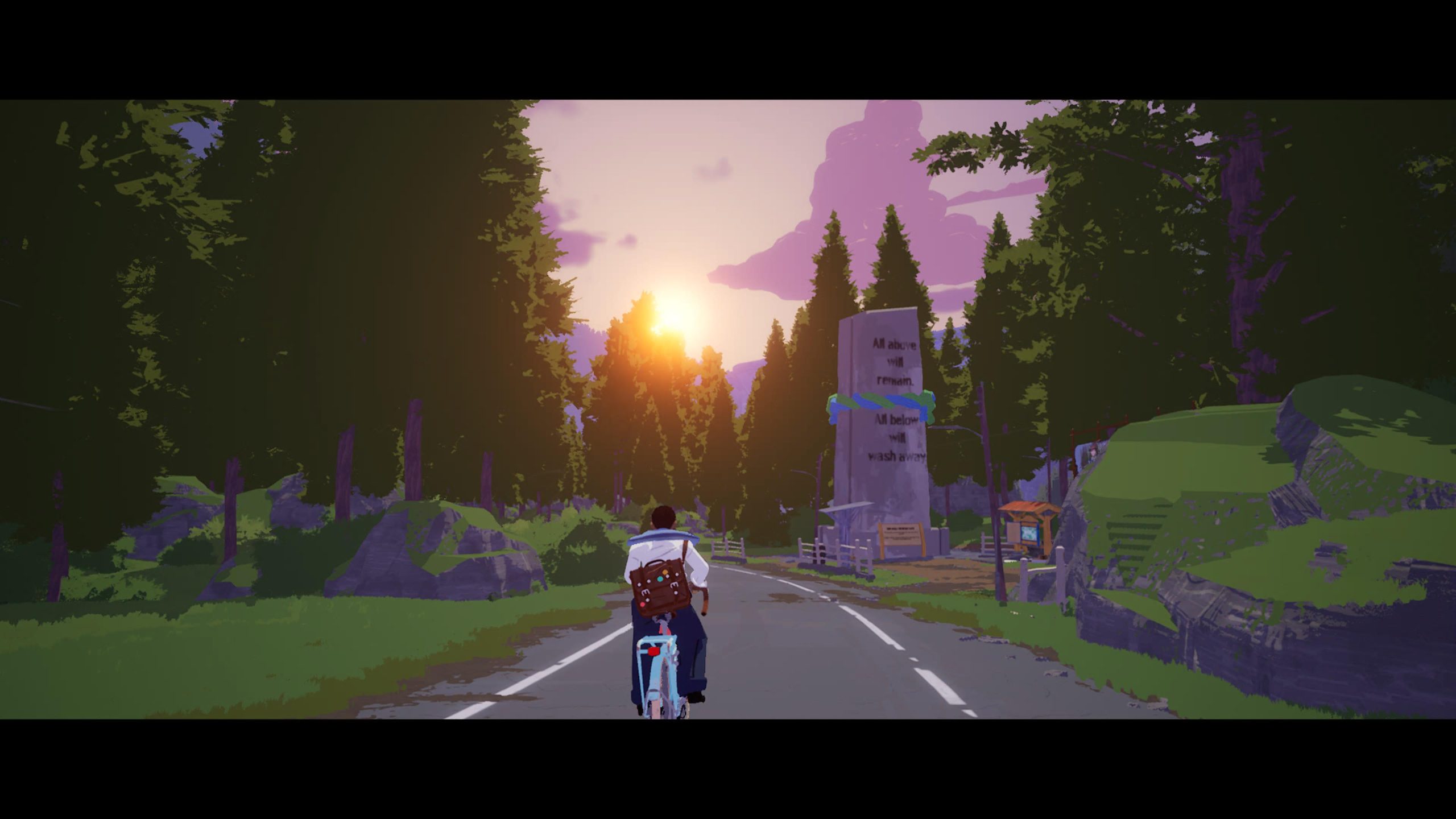
Uneven Terrain
While SEASON’s scrapbooking is sensational, its other main mechanic—biking—leaves much to be desired. The controls are simple enough: On PlayStation 5, you tap either Dualsense trigger to pedal and build up momentum. Use the joystick to steer, a bumper to break, and a face button to dismount.
That’s it—and that’s fine. After all, games like Journey show that great experiences can come in simple packages. Where SEASON falters, however, is in its execution. Steering is cumbersome, and I often found myself getting caught on geometry within the game. A handy “unstuck” menu option would dislodge me, but these instances occurred far too frequently for me to ignore.
Another area in which SEASON falls flat is its vocal performances. Some, like Estelle (voiced by Maureen Adelson), are exceptional, further elevating the great dialogue penned by the team at Scavenger Studios. Others, like Caro’s elder, come across as lifeless and sterile. The bad never undercuts the good, but the inconsistency hurts an otherwise captivating narrative.
One other bump in the road is SEASON’s pacing. Certain parts of the game—like its first 20 minutes—burn slower than a cinderblock, while others—like its ending—rush to finish. Couple this with the fact that most of Estelle’s journey takes place at a single, late-game location, and I’m left wondering what the game could have been with more time at the developer’s disposal.

Final Thoughts
SEASON: A Letter to the Future is an unforgettable story about the power of memories—how joyful it can be to make them, and how painful it can be to lose them.
It has rough edges. The story asks more than it answers, and the game feels too short for a journey of its magnitude, but these flaws only confirm what I already believe—that I wish there was more of this brilliant game.
Whether you’re a lover of adventure games or simply looking to lose yourself on a mystical journey, SEASON has plenty it’s willing to show you. Give it a chance, and it’ll give you a road trip like no other.
Score: 9.0/10
David is the founder of The Punished Backlog. He has a problem finishing games he starts.
Just beat: Hollow Knight: Silksong.
Working on: Yakuza 0, Iconoclasts, Metroid Prime 4: Beyond.
Can't wait for: Demon Tides.
Follow David on Twitter at @David_Silbert to keep up to date with all things The Punished Backlog.


